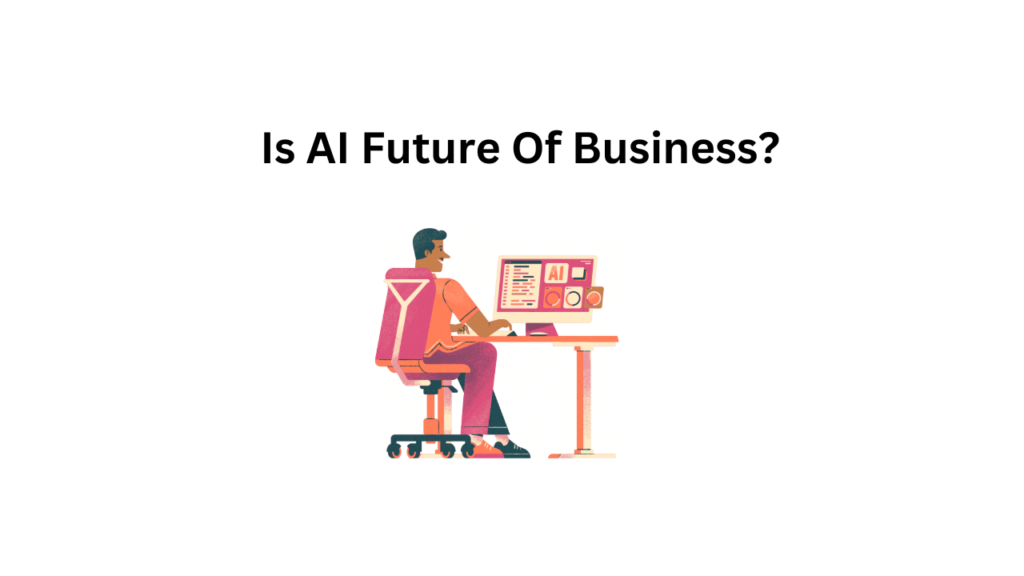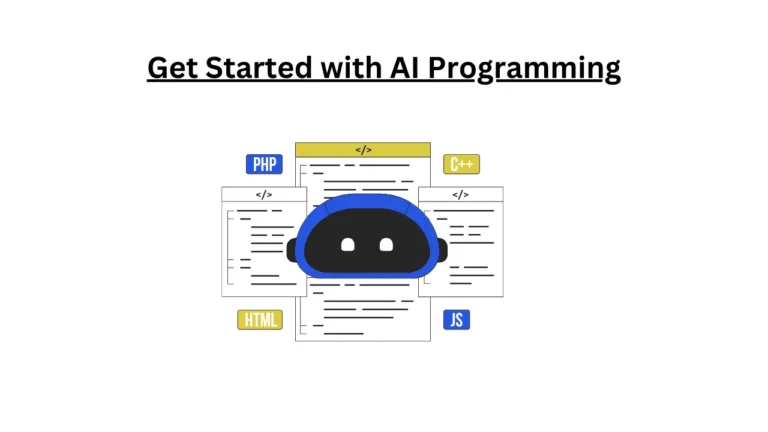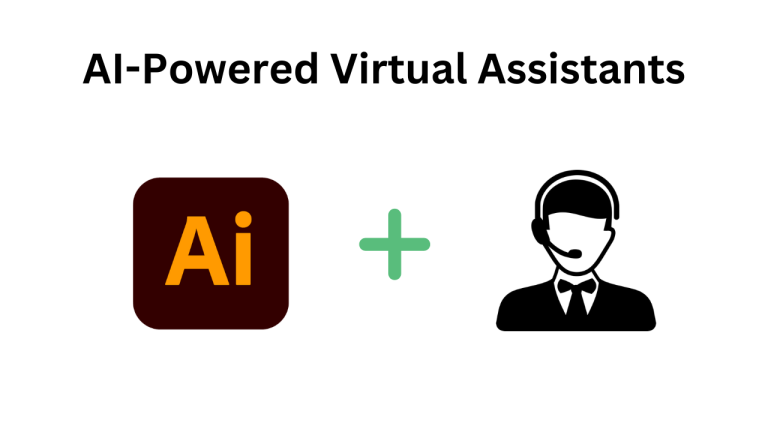Introduction: What’s the Buzz About AI?
In recent years, the term “artificial intelligence” has surged into the spotlight, captivating the interest of business leaders and aspiring entrepreneurs alike. From chatbots seamlessly handling customer inquiries to algorithms that predict consumer behavior, artificial intelligence is rapidly becoming an integral component of modern business strategies. It’s as if the average office has transformed into a scene from a sci-fi movie, complete with machines that can think, learn, and adapt. The buzz around AI isn’t just fluff; it’s a reflection of its potential to revolutionize how companies operate and interact with customers.

As we venture into this transformative era, one must ponder—could artificial intelligence be the magic potion to elevate businesses from good to great? With advancements in machine learning, deep learning, and data analytics, the answer appears to be leaning towards a resounding yes. Organizations are not only recognizing the immense advantages that AI can bring but are also discovering that adopting this technology is becoming less of a luxury and more of a necessity. It is estimated that by 2025, the global AI market will reach a staggering $190 billion, which is enough to make any business owner perk up and take notice!
Moreover, let’s not overlook the lightweight jokes that have emerged surrounding the rise of artificial intelligence. From quips about robots taking over our jobs to playful banter about who will win the next chess match between a human and a machine, the humor surrounding AI offers a chance to engage in deeper discussions about its implications in the workplace. As we delve into this thrilling journey, it is essential to strike a balance between excitement and responsibility. Through thoughtful exploration, we can uncover the potential of artificial intelligence while addressing the challenges it brings to the business landscape.
Understanding Artificial Intelligence: A Simple Breakdown
Artificial Intelligence (AI) refers to the simulation of human intelligence in machines that are programmed to think and learn like humans. This innovative technology operates through various methodologies, allowing machines to perform tasks that typically require human intellect. At its core, AI is fundamentally about making machines smarter and capable of executing complex tasks. There are primarily two categories of AI: Narrow AI and General AI.
Narrow AI, also known as weak AI, is designed to perform a specific task or a set of tasks. It has the ability to operate within a limited context and cannot exhibit general intelligence or understanding outside its programming. Examples include virtual assistants, such as Siri or Alexa, which can understand voice commands and perform tasks like setting reminders or querying information from the web. These applications showcase how narrow AI significantly boosts productivity in various business sectors by automating repetitive tasks, enhancing customer service, and providing data analysis.
On the other hand, General AI, or strong AI, possesses the ability to understand, learn, and apply knowledge across a broad range of tasks and domains. While this form of AI is still largely theoretical and not yet fully realized, advancements in machine learning and neural networks continue to bring us closer to its potential. Businesses are particularly enthusiastic about the prospect of general AI due to its ability to revolutionize decision-making processes and improve efficiency across multiple functions.
Currently, AI is being widely applied in sectors such as retail, finance, healthcare, and manufacturing. From automating customer interactions through chatbots to analyzing vast datasets for insights, AI is changing the way businesses operate. Its growth in recent years suggests that as technology evolves, AI is set to become integral to business strategies and operations, ultimately shaping the future landscape of various industries.
The Benefits of AI in Business: Why It’s a Game-Changer
Artificial Intelligence (AI) has dramatically transformed the business landscape, providing organizations with a plethora of benefits that catalyze growth and innovation. Below are some of the significant advantages that make AI an indispensable asset for businesses:
- Increased Efficiency: AI technologies automate repetitive tasks that consume valuable time. For instance, chatbots can handle customer inquiries, allowing human agents to focus on more complex issues. This not only accelerates service delivery but also enhances overall productivity.
- Cost Savings: By streamlining processes and automating operations, businesses can significantly reduce operational costs. For example, predictive maintenance powered by AI can help companies anticipate equipment failures, thereby saving on costly repairs and minimizing downtime.
- Improved Customer Experience: AI tailors customer interactions by analyzing data to understand preferences and behaviors. A practical example includes personalized shopping recommendations on e-commerce platforms that lead to higher customer satisfaction and loyalty.
- Enhanced Decision-Making: AI empowers organizations with data-driven insights, enabling better strategic decisions. Utilizing AI for data analytics helps companies identify market trends, customer sentiment, and operational inefficiencies, which supports informed choices that propel growth.
Moreover, AI can facilitate fraud detection in financial institutions by recognizing patterns and anomalies that may indicate fraudulent activities. In the healthcare sector, AI algorithms can analyze medical images with higher accuracy than humans, improving patient diagnostics and outcomes. These examples illustrate how the application of AI not only drives operational efficiency but also fosters a culture of innovation.
Ultimately, the integration of AI in business processes not only addresses current challenges but also prepares organizations for future demands, making it a game-changer in the ever-evolving commercial landscape.
Not Without Challenges: Addressing AI Concerns
The advent of artificial intelligence (AI) in the business domain has illuminated a spectrum of opportunities, yet it has also cast shadows of concern that merit thorough examination. One of the most prominent worries is job displacement. As automation technologies evolve, there is apprehension that machines may replace humans, leading to unemployment in various sectors. However, it is essential to recognize that while certain tasks may be automated, new roles demanding uniquely human skills are likely to emerge. This shift presents a challenge: how can our workforce adapt to the changing landscape? Instead of fearing a robot takeover, one might humorously ponder if we should start training AI to perform comedy, ensuring at least some job security in entertainment!
Equally significant are the ethical dilemmas associated with AI. The implementation of these technologies raises questions about accountability and the potential for biased algorithms. For instance, if an AI system inadvertently discriminates against a specific demographic, who bears the responsibility? Companies must grapple with how to design and utilize AI responsibly, leading to ethical considerations that are paramount to its acceptance. A light-hearted response to such dilemmas might be, “If only there were a moral compass that came equipped with advanced algorithms!”
Furthermore, data privacy issues persist as a major concern for businesses and consumers alike. With AI systems often relying on vast amounts of data, questions about how this sensitive information is collected, stored, and used become increasingly vital. Consumers want to be reassured that their personal information is protected, lest they feel like a character in a poorly written sci-fi movie where privacy is just an afterthought. Organizations must approach these challenges proactively, ensuring transparency and compliance with regulations to foster trust.
While the prospects of AI in business are exciting, they come with challenges that require careful navigation. Addressing job displacement, ethical standards, and data privacy not only safeguards the workforce and consumers but also paves the way for a future where AI can be a beneficial ally in business innovation.
Real-Life Examples: AI in Action
Artificial Intelligence (AI) has increasingly become a pivotal force in transforming various industries, allowing businesses to rejuvenate their approaches and optimize operations for enhanced efficiency. One noteworthy example is in the retail sector, where e-commerce giants like Amazon deploy AI-driven algorithms to provide personalized shopping experiences. Through machine learning, these algorithms analyze customer behavior and preferences, recommending products tailored to individual tastes, thus increasing sales and customer satisfaction.
In healthcare, AI’s impact is equally profound. Organizations such as Zebra Medical Vision harness AI to improve radiology diagnostics. By employing deep learning technologies, Zebra Medical Vision is able to analyze vast amounts of medical imaging data, assisting healthcare providers in identifying conditions such as cancers and cardiovascular diseases more rapidly and accurately. This application not only facilitates accurate diagnoses but also accelerates treatment timelines, ultimately enhancing patient outcomes.
The finance industry represents another arena where AI has proven transformative. Companies like JPMorgan Chase utilize AI in their compliance departments to streamline and automate routine tasks. Their COiN platform, for instance, scans and analyzes legal documents to extract critical information, significantly reducing the time and cost associated with manual document review. This use of AI not only minimizes human error but also allows financial institutions to focus on more strategic initiatives, thus improving overall operational efficiency.
Furthermore, AI is making waves in the automotive industry, contributing to advancements in autonomous driving technologies. Companies like Tesla employ AI to enhance their self-driving capabilities, allowing vehicles to learn from data gathered during drives, improving safety features over time. As these businesses successfully incorporate AI into their operations, they exemplify how integrative technologies can lead to innovation and competitiveness across various sectors.
Future Trends: What Lies Ahead for AI in Business?
The landscape of artificial intelligence (AI) in business is poised for significant evolution in the coming years. One notable trend is the increased rise of automation across various sectors. As businesses strive for efficiency and cost reduction, AI-driven automation will likely become a cornerstone of operational strategies. Tasks that previously required human intervention, such as data entry, customer service inquiries, and even complex problem-solving, are increasingly being managed by AI algorithms, resulting in heightened productivity and lower error rates.
Moreover, the push towards personalized experiences will reshape customer interactions. AI algorithms are becoming adept at analyzing vast amounts of data to understand consumer preferences and behaviors. This capability allows businesses to create tailored marketing campaigns and personalized product recommendations, leading to improved customer satisfaction and loyalty. As the technology continues to evolve, we can expect businesses to harness AI to deliver even more individualized experiences, blurring the lines between business offerings and consumer expectations.
Another emerging trend is the enhancement of analytics capabilities through AI. Businesses now have access to real-time data insights propelled by advanced machine learning techniques. These tools can uncover patterns and correlations within data sets, empowering companies to make informed decisions and strategically pivot in response to market demands. As AI analytics become increasingly sophisticated, businesses that leverage these insights will likely gain a competitive edge, driving innovation and growth.
Furthermore, incorporating visual content, such as infographics, can effectively present these emerging trends to stakeholders and consumers. Infographics can simplify complex data, making it more accessible and engaging. By visualizing trends related to AI, businesses can foster better understanding and foster thoughtful discussion on the future impacts of this transformative technology. Overall, the upcoming developments in AI promise to reshape the business landscape, creating new opportunities and challenges that require careful consideration.
Key Takeaways: Wrapping It All Up
Throughout this discussion, we have examined the transformative impact of artificial intelligence (AI) on the future of business. As organizations across various sectors embrace technological advancements, the significance of AI in enhancing efficiency, decision-making, and customer experience becomes increasingly evident. AI’s ability to analyze massive datasets and automate processes not only streamlines operations but also empowers businesses to make data-driven decisions with unparalleled precision. This strategic advantage is essential in today’s fast-paced, competitive environment.
Moreover, the role of AI in personalizing customer interactions cannot be overlooked. By leveraging machine learning and natural language processing, businesses can tailor their offerings to meet the individual preferences of their customers. This personalization elevates customer satisfaction and fosters stronger relationships, ultimately contributing to long-term success. Additionally, AI technologies such as chatbots and virtual assistants enable companies to maintain a high level of responsiveness, further enhancing the overall customer experience.
As we consider the future landscape of business, it is crucial to acknowledge the challenges presented by AI adoption. Concerns regarding data privacy and job displacement must be actively addressed. The ethical implementation of AI will play a vital role in determining its acceptance within organizations and society at large. Consequently, businesses must stay informed about industry standards and regulations surrounding AI to foster trust and uphold ethical practices.
In summary, the integration of AI into business strategies is not merely beneficial; it is essential for growth and competitiveness in the digital age. We encourage you to explore AI options tailored to your own business needs or to deepen your understanding of this transformative technology. Embracing AI could very well position your organization at the forefront of innovation, leading to sustainable success in the future.
Frequently Asked Questions About AI in Business
Artificial Intelligence (AI) has become a pivotal aspect of modern business operations, leading to numerous inquiries from business owners and stakeholders. Here are some commonly asked questions regarding the integration of AI into business strategies.
Is AI technology affordable for small businesses?
AI tools have historically been associated with high costs, but recent advancements have significantly reduced prices. Numerous cloud-based AI platforms offer scalable solutions tailored for small businesses. These options allow businesses to access sophisticated AI without the heavy upfront investment typically required for custom solutions, making technology more inclusive.
How does AI improve customer service?
AI enhances customer service through automation and personalization. Chatbots, powered by AI, can provide instant responses to customer inquiries, ensuring prompt support. Additionally, AI-driven analytics allow businesses to understand customer behavior and preferences better, enabling tailored experiences that increase satisfaction and loyalty.
What impact does AI have on decision-making?
AI systems analyze vast amounts of data faster than any human can, providing insights that facilitate informed decision-making. This data-driven approach allows businesses to identify trends, predict outcomes, and develop strategies that reduce risks while capitalizing on opportunities. Consequently, AI serves as a vital tool in forming more strategic operational decisions.
Can AI lead to job displacement in the workforce?
While AI may automate certain tasks, it is essential to recognize that it also creates new opportunities. Many roles will evolve, focusing on collaboration with AI to enhance productivity. Training workers in AI technologies ensures they can adapt and thrive in an increasingly digitized business landscape.
Addressing these misconceptions about AI can help businesses leverage this technology effectively and navigate the future with confidence.
Conclusion: Embracing the Future of Business with AI
As we navigate the complex landscape of modern commerce, it becomes increasingly clear that artificial intelligence (AI) is not merely a passing trend but rather a fundamental component shaping the future of business. By automating processes, enhancing decision-making, and providing valuable insights into consumer behavior, AI technology stands poised to transform industries across the board. Organizations that recognize the potential of AI can leverage its capabilities to not only streamline operations but also create a more personalized customer experience.
In embracing AI, businesses must approach this transition with an open mind and a willingness to adapt. Change can be daunting, but resisting it may result in falling behind competitors who are more adept at incorporating advanced technologies. By fostering a culture of innovation and continuous learning, businesses can better position themselves at the forefront of their industries. Furthermore, investing in AI tools and resources offers the opportunity for improving efficiency, enhancing productivity, and driving revenue growth. This proactive stance nurtures a mindset geared towards sustainable development.
Moreover, the integration of AI into business strategies does not negate the fundamental human elements of commerce. Instead, it enhances the interplay between technology and human intuition, allowing professionals to focus on creative and strategic endeavors rather than repetitive tasks. This synergy between humans and AI can lead to new opportunities for innovation and collaboration, propelling businesses into uncharted territories of success.
In summary, embracing artificial intelligence as a crucial element in future business strategies opens the door to a realm of possibilities. As companies learn to integrate AI effectively into their operations, they will uncover new ways to connect with customers, optimize resources, and refine their overall business models. With a thoughtful approach, the future of business will not be solely reliant on AI; rather, it will reflect a harmonious partnership between technology and human ingenuity, ultimately paving the way for unprecedented growth and advancement.


